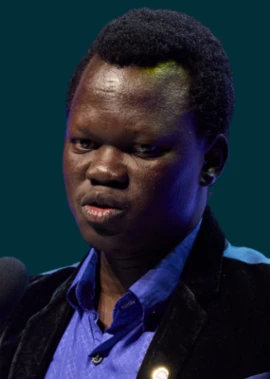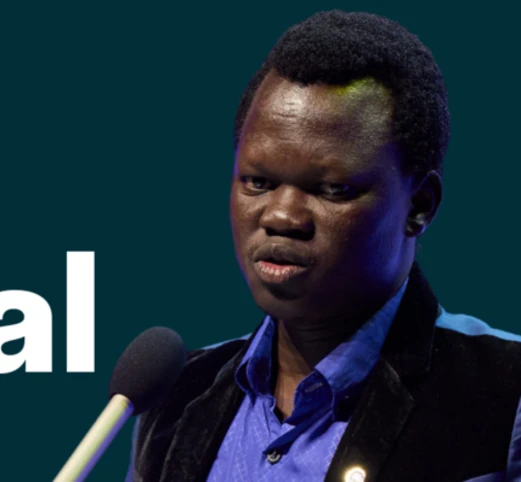We invite diverse voices to contribute to our blog. The opinions in this blog reflect the personal views of the author and not One Young World.
Imagine, for a moment, living for years without a true sense of home. Imagine you have limited access to such basic needs as clean water, education, and healthcare. This has been my reality for the past 16 years.
Since I was 13 years old, I have been living in Kakuma refugee camp in Kenya, in a house made of mud. In truth, Kakuma is more of a city than a camp because it is home to 250,000 refugees and asylum seekers. Kakuma was set up after 20,000 children fled the second Sudanese civil war in 1992. Since then, the refugees have kept coming.
Life in this camp is a daily battle. While the physical conflict might have been left behind, the psychological and emotional scars remain.
In Kakuma today, refugees are from at least eight different war-torn African countries. We live together, each carrying our own stories of loss and pain. But in such a diverse environment, conflict can arise from differences in culture, background, and limited resources. I remember a wave of clashes in 2014 within the camp that left several people dead.
My country, South Sudan, has witnessed over two million people driven out by conflict, contributing to the staggering 35 million worldwide. As a 13-year-old child, I witnessed the devastating consequences of conflict, violence and fear tear through our communities, uprooting families, and forcing us to flee our homes.
For two weeks, I walked through the bush with strangers as a lone child after being separated from my family. To survive, I was eating any fruit, even the most bitter. Many people fell down, exhausted and died in the bush from starvation. I could not sleep for fear of being left behind. Eventually, I found a UN vehicle, and they dropped me off at Kakuma, which has been my home ever since.
Finding purpose in Kakuma
Within this camp, I have found purpose in my role as a community leader. This journey led me to create Prime Demand Solution, a youth-led organisation that addresses food security, climate change, and youth empowerment in the refugee community.
We have introduced sports programmes and agricultural initiatives that provide practical skills for Kakuma residents and foster a sense of unity that bridges cultural differences. We empower them to take control of their lives.
The impact has been profound. We have helped over a thousand refugees from diverse backgrounds. The mood in Kakuma has improved as the focus of so many people's lives has shifted from mere survival to self-improvement and collective growth. This new mindset has changed the way that people behave toward each other, reducing violence and improving living conditions for everyone.
But our work is far from over. In 2023, camps for displaced people are full of risk. UN Women Africa has reported that 15 to 20 cases of rape and physical assaults are reported in Kakuma every month. Amnesty International has also highlighted that LGBTI refugees in the camp are at risk of rape and extreme violence. We who live in refugee camps deserve to live in safety and to have equal opportunities to reach our potential in life.
Please ask yourself, what could I do to help a victim of war and conflict have a peaceful night? In communities like Kakuma, diverse nationalities and ethnicities are forced to coexist in challenging conditions with scarce resources. This is a mirror on all of humanity and our ability to live as one. So if we can bring peace to Kakuma, we can definitely bring peace to the world.
Deng is a One Young World Ambassador, Team Leader for StepUp.One, and Founder of Prime Demand Solution.
Author

